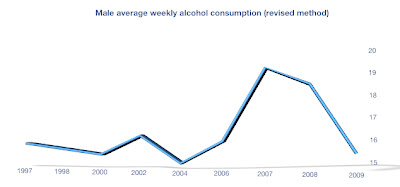This blog has mentioned John Banzhaf's graduation from anti-tobacco fanatic to anti-food fanatic
before. I haven't yet documented David Kessler's same slide down the slippery slope.
When he was in charge of the Food and Drug Administration (FDA) in the 1990s, Kessler made concerted attempts to bring tobacco within his regulatory domain (see Velvet Glove, Iron Fist, pp. 189-93). At around that time RJ Reynolds Tobacco placed ads in US newspapers, asking 'Today it's cigarettes - will high fat foods be next?'
It seemed an absurd comparison at the time but, as we now know, an assault on food was the 'next logical step' and, again, Kessler is involved.
On Thursday, Kessler appeared on Channel 4's Big Fat Diet Show, attacking the 'food industry' for making food enjoyable. This is what he said...
"Back 30, 40 years ago, what was the most salient stimuli [sic] for many people? It was tobacco. It was cigarettes. That hi-jacked our brains.
Today, what's the most salient stimuli [sic] for millions of people? It's food! That's hi-jacking our brains."
And when you get rid of food, what will be the next most salient stimulus? Do we keep going until there are no stimuli at all?
The reason food 'hi-jacks our brains' is because our bodies send signals to tell us when we need to eat and, when we do, our brains need to tell us we enjoy it. It's pretty simple, and pretty important. Pleasure is not a bad thing in itself, you know.
"We now know that fat and sugar can stimulate the brain's neural circuitry like amphetamine and cocaine."
What he's talking about is dopamine, which is released in the brain and creates the feeling of pleasure. Kessler refers to cocaine to make it sound as if fat and sugar are evil and unnatural. It's a cheap trick.
In fact, dopamine is released by doing virtually anything we enjoy, including watching television, playing sport, eating any type of food (so long as you like the taste of it), sex, smoking, a good joke etc. etc. etc.
If someone ever tells you that [fill in the blank] acts like a class A drug, just walk away, because they're just talking about dopamine and they're using scare tactics.
The drug references don't stop there...
The food industry has optimised food to achieve the maximal bliss point. They've constructed food to get us to keep on eating. It's this momentary hit. It's this momentary rush. And then you try to chase it again. We always knew that drugs can hi-jack our brain. Now we know that fat, sugar and salt - when put together in the right combination - can do the same.
A momentary "hit" that you have to "chase". Get it? Food = drugs. Let's regulate it! Needless to say, Kessler thinks that fast food is
addictive and is paving the way for it to be taxed. Do this sound familiar?
His argument is hokum, of course. A war against anything that causes dopamine to be released is, by definition, a war on pleasure. People like Kessler insisted that they were not embarking on such a puritanical crusade in the 1990s when the tobacco issue came to a head (and he was explicitly warned about the slippery slope then.
See this letter.)
Easting food is pleasurable. It's an evolutionary response to a biological necessity. The 'food industry' have made food that people want to eat. Nothing more, nothing less.
Don't consume more calories than you will burn off. It's very simple but it's still a personal choice.
You can see Kessler's performance here (30 minutes in). Thanks to JB for the tip.













